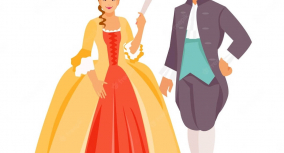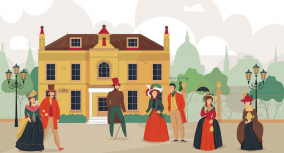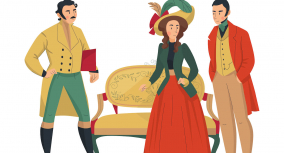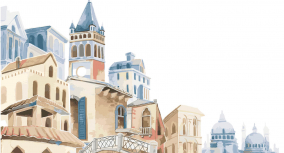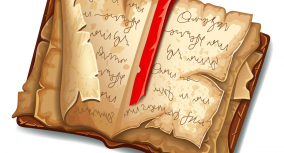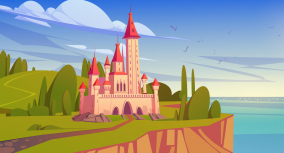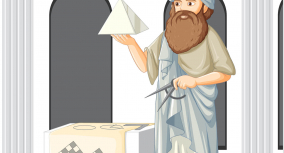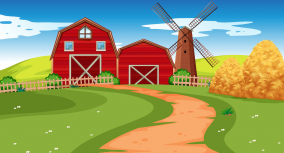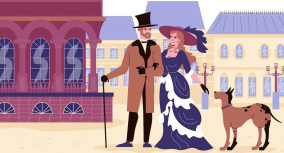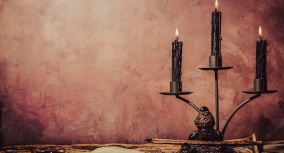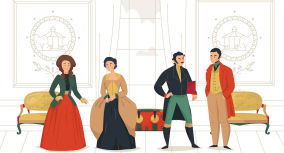There are numerous examples of satire in Candide, particularly in the protagonist’s criticism of organized religion and the optimistic philosophy of Leibniz. Voltaire also uses irony to critique the government. The whole work is deeply ironic, as it explores various examples of extreme optimism in the face of harsh reality.
If you’re curious about satire in Candide, as well as other aspects of its literary analysis, you’ve come to the right place. Here, Custom-Writing.org experts will answer all your questions:
- How does Voltaire use satire in Candide?
- What are examples of satire in chapters 1 and 2?
- What are the symbols in Candide?
Keep reading to learn more about Voltaire’s iconic work!
😄 Irony in Candide
- Situational irony happens when the expectations of the reader or the character do not come true.
- When Candide joins the ranks, he expects respectful treatment and chances to prove himself in battle. His service is only about beating and pointless sadistic exercises, and the war is futile and unorganized bloodshed.
- Pangloss, “the oracle of the family” and Candide’s teacher, is the most narrow-minded character. His philosophy is absurd and childish.
- Dramatic irony emerges when the reader knows more than the characters.
- Candide gave money to some Parisians who claimed to have seen Cunégonde. The reader understands that it is a scam.
- Every time the characters declare some optimistic ideas, the reader realizes how wrong they are.
- Verbal irony is a contrast between the tone of the author’s words and their meaning.
If this is the best of possible worlds, what then are the others?
Candide, Candide, Chapter VI
The sages of that country could think of no means more effectual to prevent utter ruin than to give the people a beautiful auto-da-fé.
Candide, Narrator, Chapter VI
🤡 Satire in Candide
Satire ridicules human behavior, traits, or actions to expose wrong attitudes, deflate the high-flown rhetoric of philosophy, or introduce some reforms. In Candide, the author aims to mock Leibniz’s philosophy of optimism, the hypocrisy of religious workers, abuse of women, war, greed, government, and many others.
Some scholars consider satire as a form of verbal irony. However, Voltaire’s satire is above the level of mere words. He uses exaggeration, understatement, and euphemisms to create satire. Moreover, the constant mismatch between the expectations and reality enhances its effect.
Examples of Satire in Candide
- The Baron is “one of the most powerful lords,” but in fact, he is primitive and a weak leader.
- The Baroness is “the best of all possible Baronesses,” although she suffers from obesity.
- Pangloss demonstrated to Candide “that the Bay of Lisbon had been made on purpose for the Anabaptist to be drowned.” It is the best example of his absurd views.
- Cunégonde, “the pearl of girls,” turns out to have a “fretful” character.
- “Everything is right, may be, but I declare it is very hard to have lost Miss Cunegonde and to be put upon a spit by Oreillons.” It is the satire of both philosophic optimism and romantic novels.
🦄 Candide Symbols
The text is profoundly symbolic. Each person or object represents an idea. For example, Cunégonde symbolizes the elusive dream, and the red sheep represent the hope for a better life. But the most critical symbols are Pangloss’ syphilis and the setting sites of the garden, El Dorado, and Thunder-ten-tronckh.

Syphilis
In Chapter 4, Candide meets Pangloss, devastated with syphilis. He has no money for treatment, but Candide’s benefactor, Jacques the Anabaptist, pays for him.
By the moment the medication starts, Pangloss has already lost an eye and an ear. These organs are essential for a clear perception of the outside world. But as far as the character had an idealized view of reality, they were of no use for him.
Providence has then brought you amongst us again, my poor child! Do you know that you cost me the tip of my nose, an eye, and an ear, as you may see? What a world is this!
Candide, Pangloss, Chapter XXX
Besides, syphilis transfers through sexual connection and impedes reproduction in some cases. Voltaire refers to the absurdity of God’s omnipotence and omnibenevolence. How could He create the disease that prevents procreation?
The Garden
The garden is a version of a utopia that can exist in the human world, unlike El Dorado. In the garden, everyone receives equal treatment and respect. Personal success and material benefits come from hard work, which is a more efficient motivator than infinite gold available to El Dorado citizens.
All that is very well, but let us cultivate our garden.
Candide, Candide, Chapter XXX
Human free will is responsible for the garden’s prosperity, not the benevolence of God or a mundane ruler. Voltaire hints that the place is a microcosm of society, and the same rules are applicable to any country and world as a whole.
The people who live in the garden are happy to the possible extent, except for Pangloss. The professor does not work and laments his unfulfilled career. This positive mood is a reference to the Garden of Eden, literally a paradise.
🗺️ Candide Setting
The story takes place somewhere in the 18th century all around the globe. Candide’s journey starts in Westphalia, in the castle of Thunder-ten-tronckh. Then the protagonist travels to Waldberghofftrarbk-dikdorff (an imaginary town), then the Netherlands, Portugal, El Dorado, South America, France, and England.
El Dorado
In the 16th and 17th centuries, some Europeans believed that the golden city of El Dorado existed somewhere in America. The legend tells that unthinkable treasures can be found in the city. In Candide, El Dorado is an ideal society built on the principles of equality and science. Voltaire changes the material wealth (although still present in the book, but not as important) for abstract utopian benefits.
The people of El Dorado do not know what greed, suffering, conflicts, or wars are. They do not have any religious institutions that wish to prevail above all the other ones. The legendary city is the opposite of what Candid and Cacambo saw in reality.
We do not pray to Him, we have nothing to ask of Him; He has given us all we need, and we return Him thanks without ceasing.
Candide, Old Man, Chapter XVIII
Thunder-ten-tronckh
It was the name of Candide’s home castle. He was the niece of Baron, who owned it. The building was a fairy-tale building that symbolizes Candide’s naivety in Chapter 1. He studies “metaphysico-theologico-cosmo-lonigology,” taught by Pangloss, the castle teacher. The philosophy confines to believing that we live in the best of all possible worlds and that everything happens for a good purpose.
He proved admirably that there is no effect without a cause, and that, in this best of all possible worlds, the Baron’s castle was the most magnificent of castles, and his lady the best of all possible Baronesses.
Candide, Narrator, Chapter I
It is the place where Candide finds his love, Cunégonde. They share a kiss, and Baron throws the protagonist out of the castle. This scene resembles the Biblical Expulsion from Paradise. After all, the result is the same: Candide learns that the world is not as good as he used to think and that nothing is created for his benefit.
📝 What Does the Ending Mean?
In the end, Candide, Cunégonde, Pangloss, Martin, the Old Lady, and Cacambo started living on a farm. Each of them lived as happily as their character allowed. Candide “must have led a very happy life.” Cunégonde grew even uglier and more fretful. Cacambo “was fatigued with hard work, and cursed his destiny.” Pangloss despaired about “not shining in some German university.” For Martin, “he would be as badly off elsewhere,” and he did not lament.
These different views show that the same life situation can make people happy or miserable, depending on their mood and habits. But on top of that, only hard work can make life tolerable and purposeful. Thus, Candide says, “We must cultivate our garden,” meaning that work is the definition of happiness.
Thank you for reading this article! If you need help with formulating a thesis for your paper on Candide, try our thesis statement generator. If you are looking for an essay idea on the short story, you might want to take a look at the essay topics collection. Any questions left? Check the QA section!
🔗 References
- The Project Gutenberg eBook of Candide, by Voltaire.
- Voltaire’s Candide: Summary & Analysis – Study.com
- Hesitation: An Analysis of Candide – CORE
- Candide | Introduction & Summary – Encyclopedia Britannica
- Voltaire’s ‘Candide’: Analysis of a classic
- Examples of Satire in ‘Candide’ – Education Seattlepi
